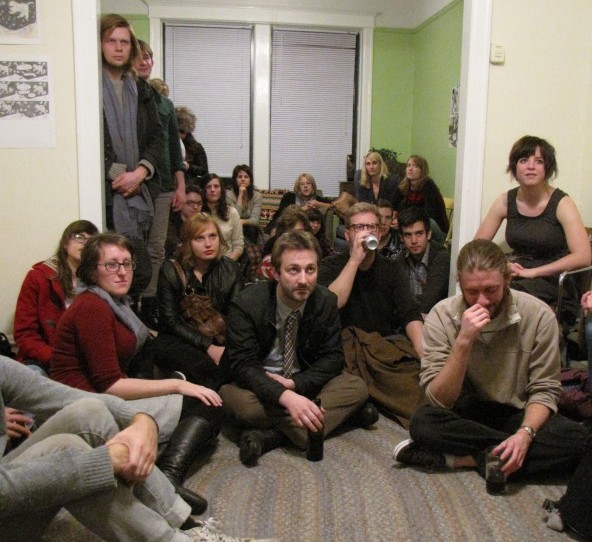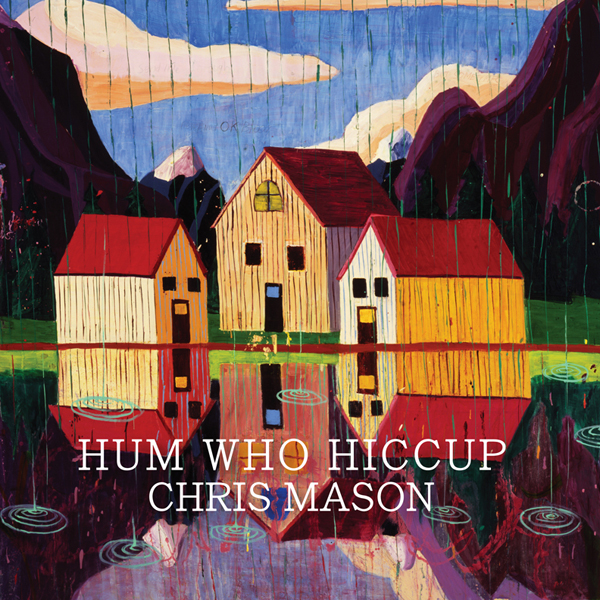11. In his craving for fame and fulfillment he dumped his family, bullied his friends, ripped off ideas and lied about his past. Charlie Sheen? No, Gauguin.
11. Seventy-one copies or eighty-two days remain to snort up Darby Larson’s The Iguana Complex. Go there.
11. Lorrie Moore weighs in on the Carmelo Anthony/New York Knicks trade.

1. Top 10 counter-culture books. At first I gandered and thought where is Trout Fishing? But it seems like this guy glows memoirs. I’ve read zero of them. Summer?
11. Your best guess: What the fuck is a personal library? It sounds like I am a book. We are not books, but the idea is comforting (beginning, middle, end–nice delusion…). Here’s a new one: What is on your personal library shelf right now that isn’t a book. I am going to go look right now: empty wine rack, candles with dust balls, 3 family photos (all three professional, posed bullshit photos), a gnome dressed as a Tennessee Titan, a plastic pumpkin (fuck, it stayed up since Halloween), a fake hollowed-out book that is a hiding spot for letters from a young lady in South Africa, a rope bracelet that protects you from sharks, __________, two deeds to automobiles, a buckeye, a single .44 bullet, a chocolate coin, a treasury bond. You?
Author Spotlight & Random / 20 Comments
February 25th, 2011 / 4:35 pm

I just read a beautiful translation of Véronique Tadjo’s Queen Pokou by a prof here at New College, Amy Baram Reid. Amy was my professor fifteen years ago; one of my favorite classes in college was her course called New Worlds, New Stories: Women Writing in the Americas. As a matter of fact, I discovered one of my all-time favorite books, Michelle Cliff’s Free Enterprise, in that course, as well as developing a new appreciation for and understanding of gender politics through literature.
In Queen Pokou, Véronique Tadjo re-imagines the 18th-century Western African legend of Queen Pokou, who according to said legend, threw her baby into a river in order to appease the gods and save her exiled people. The river parted, Pokou’s followers crossed, and the Baole people were born out of Pokou’s cries: “Ba-ou-li. Ba-ou-li (The child is dead).”
This book exists as a series of concentric maybes. It’s beautiful in its rendering of the grief of a mother to, alternately, the fear-inducing power of a queen coming into her own. One iteration of Tadjo’s re-imagining, “The Atlantic Passage” asks, “But what if Abraha Pokou had refused the sacrifice?” and takes Pokou and her son to the Americas via the slave trade.
Being a big fan of retellings in their ability to redistribute power and deconstruct prohibitive worlds, I like what Amy Baram Reid says in the book’s afterword:
READ MORE >
10 Comments
February 25th, 2011 / 2:26 pm

From a 2003 interview with Robert Birnbaum:
RB: And then there are the attacks on writers like Morrison and Salman Rushdie and DeLillo and now young guys like Franzen and Foer and it strikes me that they are being attacked by people who haven’t read them…
PE: It’s always easier to condemn something when you haven’t read it.
RB: But why get so worked up? On the other hand, maybe it’s a good thing that people are passionate about these things.
PE: If that’s really what they are passionate about? If somebody is really offended by the artistic sensibility of some writer that would be a great discussion. But if they are simply jealous of that person’s success or something personal, I don’t get it.
Read the rest at Identity Theory.
Random / 14 Comments
February 24th, 2011 / 7:42 pm

Cassandra Troyan & Sara Drake run a (somewhat) monthly reading series out of their apartment in Chicago. Having attended a few of the readings myself, I found myself particularly interested in what Troyan & Drake have accomplished: each reading series brings together (mostly young) people from various backgrounds (though mostly related to the arts/humanities) into an enclosed space to hear 4 or 5 readers. The events straddle the line between house party & art opening (and indeed, at one event there was art displayed on the walls), but it’s the words that get center stage here. I sent Cassandra a few questions through Facebook about the reading series, and hey here they are:
M: I am always interested in the way that people who take a D-I-Y approach to life manage to turn private spaces (the home, for instance) into public, communal spaces. Living in a “college town,” as I’ve spent my entire life doing, it seems more likely to find people at a huge house party than a bar or “club.” When it comes to event spaces, I also often find the non-affiliated to be more comfortable, even more rewarding. People have art shows in their apartment to escape the realm of an institutionalized sense of curation, people have bands play in basements to crowds of many to avoid booking agents and dealing with venue crap, and now you & Sara Drake have opened up your apartment as an area for readings, something that seems to happen most often at bars or academic spaces. What circumstances found you guys deciding to start the Ear Eater reading series?
Cassandra: Much of the circumstances you mention are similar to the experiences and situations shared by Sara and I, which all influenced the desire to create EAR EATER. I went to undergrad at the behemoth institution, Ohio State University, in the notoriously college-run town of Columbus, Ohio. I think precisely because of this, most of my social interactions turned more traditionally private spaces into sites of collectivity.
READ MORE >
Events / 58 Comments
February 24th, 2011 / 1:01 pm
 Oh sweet, the new book from Narrow House is out and shipping — Hum Who Hiccup by Chris Mason. He’s one of my favorite people poets in the people universe, so smart and nice and a relaxed scholar of what’s happening. And what’s happening is so much because of what he’s doing and what he’s done, like playing music in one of my top favorite bands, Old Songs, which performs their own translations of ancient Greek poetry. An Old Songs show is worth a trip to Baltimore.
Oh sweet, the new book from Narrow House is out and shipping — Hum Who Hiccup by Chris Mason. He’s one of my favorite people poets in the people universe, so smart and nice and a relaxed scholar of what’s happening. And what’s happening is so much because of what he’s doing and what he’s done, like playing music in one of my top favorite bands, Old Songs, which performs their own translations of ancient Greek poetry. An Old Songs show is worth a trip to Baltimore.
The first mention of the book by Michael Lally is up. I think there will be a lot more buzzing soon. I got a sneak peak and can attest that it’s a beautiful book, outside and in. The poems are funnier than they ought to be (there’s a tribute to a fart, I think), but they work because Mason has perfect pitch. And Justin nailed a challenging design — challenging because some of Mason’s poems are circular because who said words have to sit on a line?
Or do anything else ordinary? Evidence of such postulatin’ below the fold, with Chris Mason reading at In Your Ear (introduced by the ambulant Buck Downs): READ MORE >
Author News / 6 Comments
February 24th, 2011 / 10:35 am








